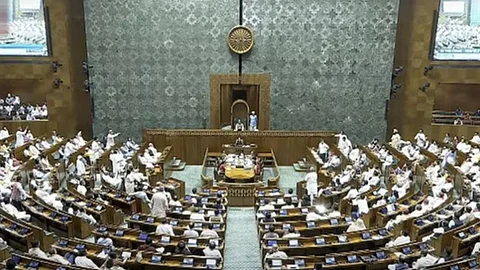

Union Parliamentary Affairs Minister Kiren Rijiju announced that the Monsoon Session of Parliament will be held from July 21 to August 12, with a major focus on building cross-party consensus over a proposed motion to impeach Justice Yashwant Varma, a sitting High Court judge.
The impeachment push stems from serious corruption allegations after cash was recovered from the judge’s official residence in March, reportedly found following a fire incident. Rijiju emphasized that the government is making efforts to keep the issue non-political, highlighting that such matters of judicial integrity require unified parliamentary action.
“The impeachment motion should not be seen through a political lens,” Rijiju said, adding that he has already spoken to major Opposition parties, including the Congress, TMC, DMK, and Samajwadi Party. Discussions with smaller parties are ongoing.
To proceed with the impeachment, the motion requires the support of 100 Lok Sabha MPs or 50 Rajya Sabha MPs, followed by a two-thirds majority vote in both Houses. Rijiju confirmed that the government expects cooperation from the Opposition, which has also voiced concerns over the allegations against the judge.
Under the Judges (Inquiry) Act, 1968, such a motion, if admitted, leads to the formation of a three-member inquiry committee comprising a Supreme Court judge or the Chief Justice of India, a High Court Chief Justice, and a distinguished jurist. However, Rijiju noted that the Supreme Court had already constituted a panel that submitted its findings to the CJI in May. Whether a new parliamentary committee will be formed will depend on the Speaker's final call.
Meanwhile, a government official clarified that there are no plans for a special session to discuss the Pahalgam terror attack or Operation Sindoor, as demanded by some Opposition MPs. The government maintains that all issues can be raised in the upcoming session as per parliamentary procedures.
Congress leader Jairam Ramesh criticized the early announcement of session dates, alleging it was a strategic move to sideline urgent demands for a special session. He cited a list of unaddressed national security and foreign policy concerns, questioning the government's priorities.
As Parliament gears up for what could be a politically charged session, the spotlight remains firmly on the impeachment motion and whether bipartisan support can be achieved on an issue central to judicial accountability.
(This story is published from a syndicated feed)